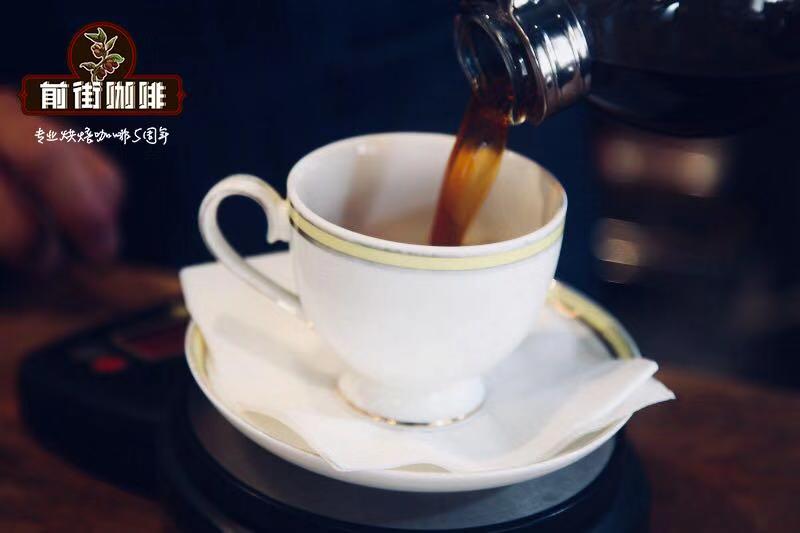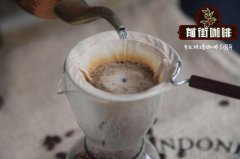Have you ever heard the touching story of Kenyan coffee? what is the moral of Kenyan coffee beans?

Professional coffee knowledge exchange More coffee bean information Please pay attention to coffee workshop (Weixin Official Accounts cafe_style)
If you've seen the Hollywood movie Out of Africa, you're familiar with the story of Kenyan coffee. Kenya's coffee sector contributes about 0.2 per cent of GDP and about 8 per cent of total agricultural export earnings, with Kenya's coffee exports accounting for more than 90 per cent of production. In the 1987 - 88 season, production reached a record 127,000 tons, while in the 2016/18 season it was only 47,000 tons, only 0.5% of global coffee production. Smallholder farmers account for 60 per cent of the country's coffee production, middlemen erode profits and many coffee farmers receive only 20 per cent of the export price of coffee beans. And rarer and rarer.
The violent and changeable grassland ecological environment has created the hard character (hardness) of Kenya coffee beans, so it needs to enter the second explosion to stimulate her mysterious flavor. Warming up too fast or too slowly, it's hard to tame her wildness.
The moment you pick up your coffee cup, it's like standing in the Masai Mara prairie full of wildflowers in the rainy season, with intense and complex floral aromas; the urban flavor of nut cream chocolate, mixed with juice and citrus aromas, slowly emerges.
I think Karen felt this ecstasy when she planned to become a baroness at home in Denmark.
Life didn't go according to plan. Instead of growing flax, a conventional cash crop, their farm was whimsically switched to coffee by the baron. Baron is a debauched aristocrat, Karen has to take on the burden of running the farm alone, and the local aborigines to make good relations, live a lonely and closed married life.
Kenya's coffee is wild by nature, and the Europeans who came here carried the same genes. Karen wasn't a guy who would wait to die. Her innate adventurous spirit allowed her to quickly adapt to this strange land.
Hunting, growing coffee, treating indigenous people, dealing with European aristocrats who settled here; sending a car to the front lines of African battlefields during World War II, indigenous tribes who encountered lions, bad weather, lost and unknown friends. When she appeared in front of the gentlemen who were fighting, everyone was shocked.
However, she is also soft, firm and romantic, kind and unrestrained. God has blessed her. When she faced the lion's attack, love also fell from the sky. Dennis, the prince charming like the wind, saved her and fell in love with her. Just like this Kenya AA, the taste has a strong sense of conflict, bright apple acid and faint smoky flavor, wrapped in caramel, dark chocolate and light cream flavor; the moment swallowed, light floral and berry, citrus flavor drift leisurely; rich and intense, taste span is very large.
And then there's the rhyme. The story ends with mixed emotions. A big fire broke the baroness, the playboy had already found another lover and divorced her, and Prince Charming Dennis also unfortunately crashed.
Karen made a last-ditch effort to secure residency for the indigenous people in her territory (Kenya became a colony after World War II), settled in with her long-serving servants, and left Africa, never to return.
End of story,
But Kenyan coffee is famous all over the world.
Due to the low income from coffee cultivation, many coffee farmers began to switch to other cash crops. Kenyan coffee is grown by smallholders who harvest the coffee and send it fresh to a cooperative washing station, which sends the washed and dried coffee to the cooperative in the state of "parchment beans"(i.e. beans covered with an endocarp)("parchment beans" are the final state of the beans before peeling). All the coffee is collected together and the grower charges an average price based on its actual quality.
The Kenyan government takes the coffee industry extremely seriously, and it is illegal to cut down or ring coffee trees here. Kenya's coffee buyers are world-class buyers of premium coffee, and no country grows, produces and sells coffee as consistently as Kenya.
All coffee beans are first acquired by the Coffee Board of Kenya (CBK), where they are appraised, graded and then sold at weekly auctions, where they are no longer graded. The Kenya Coffee Board acts only as an agent, collecting coffee samples and distributing them to buyers so that they can determine price and quality. Nairobi auctions are held for private exporters and the Kenya Coffee Board pays growers below-market prices.
END
Important Notice :
前街咖啡 FrontStreet Coffee has moved to new addredd:
FrontStreet Coffee Address: 315,Donghua East Road,GuangZhou
Tel:020 38364473
- Prev

Why do you like Manning? is the taste good? introduction to the brewing method of Manning Coffee
For more information on coffee beans, please follow Coffee Workshop (Wechat official account cafe_style) Manning, Sumatra, one of the most famous and in demand coffee in Asia. Despite their ugly appearance, coffee fans often say that the worse the Sumatran coffee beans are, the better, mellow and slippery they are. Manning is not the name of the producing area, place name, port name, also
- Next

Introduction to Starbucks Kenya Coffee beans | introduction to Starbucks Kenya and Sumatra coffee beans
Professional coffee knowledge exchange more coffee bean information please follow the coffee workshop (Wechat official account cafe_style) Starbucks usually choose coffee beans with an international score below 80, boutique cafes choose coffee beans with an international score of more than 80, we are not sure which continent Starbucks coffee beans come from, and there is a vague introduction to its farm and its batches. Launched in 1971, Ken
Related
- Beginners will see the "Coffee pull flower" guide!
- What is the difference between ice blog purified milk and ordinary milk coffee?
- Why is the Philippines the largest producer of crops in Liberia?
- For coffee extraction, should the fine powder be retained?
- How does extracted espresso fill pressed powder? How much strength does it take to press the powder?
- How to make jasmine cold extract coffee? Is the jasmine + latte good?
- Will this little toy really make the coffee taste better? How does Lily Drip affect coffee extraction?
- Will the action of slapping the filter cup also affect coffee extraction?
- What's the difference between powder-to-water ratio and powder-to-liquid ratio?
- What is the Ethiopian local species? What does it have to do with Heirloom native species?

